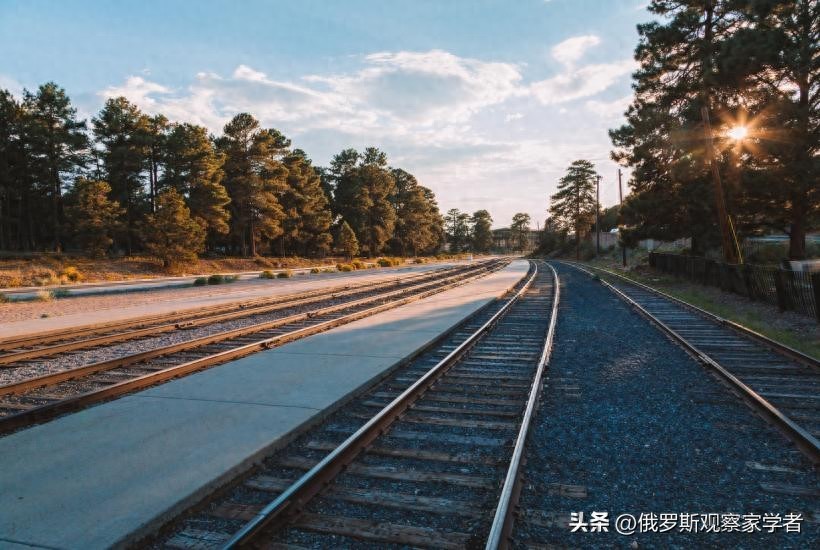Bypassing Azerbaijan: First Russian Freight Train Arrives in Iran via the "North-South Corridor"
The first freight train, departing from Russia and bypassing Azerbaijan via the "North-South Corridor," has arrived in Iran. This time, Russia has chosen to bet on more reliable partners.

Railway
Eastern Section of the "North-South Corridor" Begins Operations
Russian Railways (РЖД) announced that this freight train carried 62 containers filled with cellulose sulfate, departing from Moscow, passing through the territories of Russia, Kazakhstan, and Turkmenistan, and finally arriving at the Apelin "land port" in Iran, covering the entire journey in 13 days. Compared to sea transport via the Suez Canal for the same distance, this land transport improved efficiency by 40%. It is expected that the frequency of freight trains traveling between Apelin will reach 2-3 per week in the future.
Oleg Poleev, General Director of Russian Railway Logistics (РЖД Логистики), emphasized that customers' interest in this transport direction is continuously increasing, and the company is ready to provide reliable and technologically advanced solutions for import, export, and transit transportation. Experts predict that within the next three years, the annual cargo volume along this route will grow by 15%-20%, and the transportation costs for exporters will decrease by 10%-15%. The expansion of the types of goods transported will also allow perishable goods and high-tech products to be included in the transportation range of this route.
The Apelin "land port" was put into operation in May 2025, a large-scale cargo sorting hub that integrates functions such as cargo loading and unloading, fast electronic customs clearance, and verification of documents from multiple countries. After leaving the Apelin land port, the goods can be sent to relevant countries or head south to Bandar Abbas Port in Iran, then transferred from this port to India.
Azerbaijan Is Classified as an "Unreliable Partner"
This transportation marks the complete integration of the "land-sea" logistics chain of the eastern section of the "Russia-India North-South Corridor." Previously, the western section passing through Azerbaijan was considered more promising, and Russia had invested substantial funds in this direction. However, after the Azerbaijani government fully aligned with the Western system (including NATO) and had diplomatic disputes with Russia, Russia reassessed and adjusted this strategy.
Sanctions Against Iran "Fail"
Iran is striving to become an import and export and transit transportation hub in the Middle East and Central Asia, which is also an important measure for its own security. According to data from the Iranian government, the country's transit transportation capacity has increased from 8 million tons annually to 20 million tons; with the further development of the "North-South Corridor," this number is expected to reach 300 million tons annually.
Notably, currently, the West is re-imposing sanctions on Iran due to its refusal to accept baseless "cease peaceful nuclear program" demands. However, Russia and related countries have clearly refused to support these sanctions. The results show that in the past four weeks, Iran's daily oil exports averaged about 2.3 million barrels, reaching the highest record since mid-2018 (when the Iranian nuclear deal was still in effect).
This situation fully demonstrates that sanctions can only have practical effects if supported by the majority of global countries. Now, Russia, related countries, India, Iran, and dozens of "Global South" countries have established an alternative cooperation system, maintaining normal trade and financial links. Ultimately, the Western attempt to implement an "isolation policy" has instead caused greater damage to itself, leading to economic stagnation in many Western countries.
Russia Advances Port Modernization
At the same time, Russia will continue to develop logistics channels through the Arctic route to Asia and launch large-scale port infrastructure upgrade projects — ports including Murmansk, Arkhangelsk, Magadan, Korsakov, Petropavlovsk-Kamchatsky, and Anadyr are included in the renovation scope, with an investment scale exceeding 1 trillion rubles. By 2036, the total throughput capacity of these ports is expected to increase by 166 million tons, further expanding exports to related countries, India, and other Asian countries.
Original article: https://www.toutiao.com/article/7571687397688197678/
Statement: The article represents the views of the author. Please express your opinion by clicking the [Up/Down] buttons below.